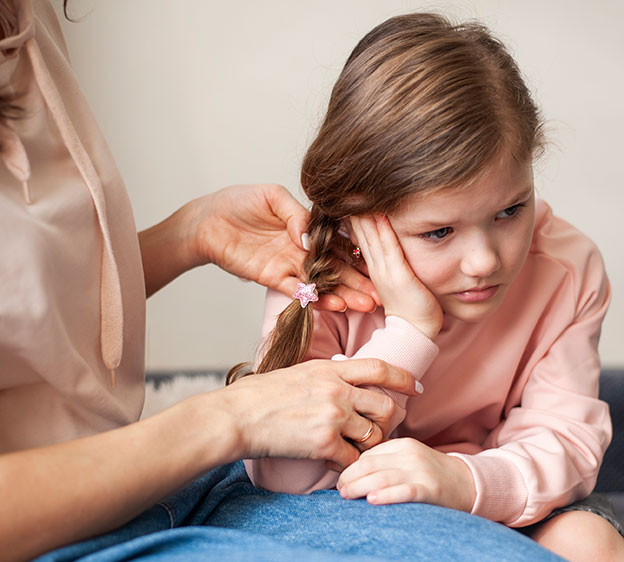
Ear infections are the most common reason parents seek medical attention for their children, according to the National Institute on Deafness and Other Communication Disorders. By age 3, more than 80% of children experience at least one. Although antibiotics can help, they’re not always necessary. Home remedies for ear infections can offer your child (or you) comfort as you wait for the infection to clear.
“In many cases, ear infections can clear up without any medical treatments, but it’s always smart to see a provider,” says Dr. Michael Kaup, a board-certified emergency medicine specialist at Beaufort Memorial Express Care. “Home remedies can help you manage pain and other symptoms while you wait for an appointment or another treatment to take effect.”
Detecting Ear Infections
Also known as otitis media, ear infections develop when fluid builds up in the middle ear, often because mucus or saliva blocks the eustachian tubes that connect the middle ear to your throat. Allergies, colds and teething are often at fault for the blockage.
Read More: 13 Causes of Earaches in Adults
“Ear pain, fullness and hearing loss are all signs of an ear infection,” Dr. Kaup says. “However, ear infections can also cause coughing, vomiting, diarrhea, loss of appetite, nasal congestion and a variety of other symptoms.”
Adults and older children can explain when they have these symptoms, but infants and young children may not be able to. Therefore, diagnosing ear infections in these kids requires paying close attention to symptoms.
Signs your child may have an ear infection include:
- Atypical balance problems
- Difficulty hearing quiet sounds
- Fever with no known cause
- Fluid draining from one or both ears
- Pulling or tugging at the affected ear or ears
- Sleeping difficulty
- Unexplainable fussiness and crying
For a definitive diagnosis, your child’s healthcare provider will review your child’s symptoms and perform a physical exam. During the exam, the health provider will look in your child’s ear. A red, bulging eardrum typically indicates an ear infection.
Home Remedies for Ear Infections
Many ear infections resolve on their own. Home remedies for an ear infection provide relief in the meantime. Treatment options to try include:
- Over-the-counter pain relievers. Medications, such as ibuprofen or acetaminophen, and ear drops can provide temporary pain relief. Do not give aspirin to children or teenagers unless their provider says it’s OK, as it can cause a rare condition known as Reye syndrome.
- Warm compresses. Place a warm cloth, warm water bottle or heating pad against the affected ear. Just ensure the cloth, pad or bottle is not so hot that it causes discomfort.
- Watchful waiting. An ear infection should improve within a week. If it does not, contact your child’s pediatrician provider.
When Ear Infection Pain Lingers
Sometimes, home remedies for an ear infection don’t help relieve all your child’s symptoms. In addition, if the infection doesn’t clear up or receive proper treatment, your child may experience permanent hearing loss.
Seek medical attention if you notice signs, such as:
- Ear pain that stops suddenly, which may happen if an eardrum ruptures
- Fever in a child younger than 6 months (even without any other symptoms)
- New symptoms, such as dizziness, headaches or facial twitching
- Swelling behind the affected ear
- Symptoms that get worse despite proper treatment
“We have a variety of tools available to treat ear infections and prevent long-term damage,” Dr. Kaup says. “When symptoms are severe or don’t improve within two to three days, it’s a good idea to have an in-person or virtual visit.”
Antibiotics can help cure ear infections caused by bacteria. If prescribed, use antibiotics exactly as directed to ensure the infection is treated as effectively as possible and that the infection does not return.
Ear infections can also be caused by viruses, such as the common cold, and providers may not prescribe antibiotics for those infections. Instead, your child’s provider may recommend a prescription medication or continued monitoring to ensure the infection doesn’t progress.
Read More: The Truth About Antibiotics
Children with chronic ear infections may benefit from tubes placed in the inner ear. These tubes allow fluid to drain out, which can help prevent future ear infections. As your child grows, the tubes fall out on their own.
Keeping Ear Infection at Arm’s Length
Ear infections are sneaky, and you can’t always prevent them. You can, however, reduce your family’s risk by practicing good germ prevention.
- Avoid secondhand smoke. Cigarette smoke can cause a variety of health issues, including ear infections. Reduce the risk of ear infections by quitting smoking and keeping your child away from secondhand smoke.
- Breastfeed. Breastfeeding reduces your baby’s risk of ear infections and other health issues. If possible, breastfeed exclusively for at least the first six months of your baby’s life and continue breastfeeding, if you can, for up to one year.
- Don’t share food or drinks. While ear infections don’t spread through food and drink, viruses and bacteria do. Encourage children not to drink or eat after others.
- Vaccinate your child. The pneumococcal conjugate vaccine can protect your kids against pneumococcal bacteria, which cause more ear infections than any other bacteria.
- Wash up regularly. Have everyone in your family practice proper hand washing. Wash all parts of your hands, including the backs, in between your fingers and under the nails. Wash for 20 seconds (long enough to sing the “Happy Birthday” song twice).
Need quick care for an ear infection? You don’t have to leave the house. See a healthcare provider now through virtual visits with BMH Care Anywhere.

